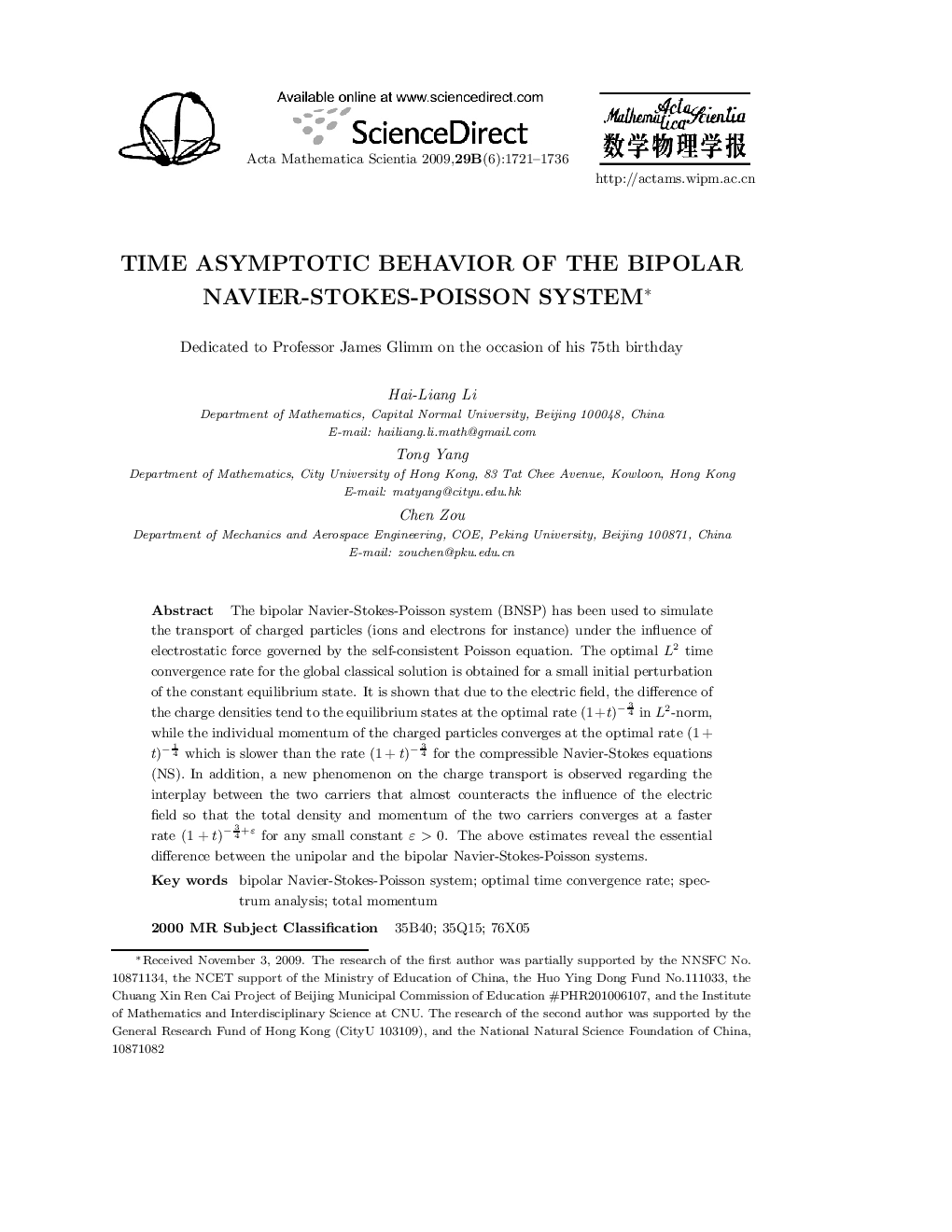| Article ID | Journal | Published Year | Pages | File Type |
|---|---|---|---|---|
| 4664923 | Acta Mathematica Scientia | 2009 | 16 Pages |
The bipolar Navier-Stokes-Poisson system (BNSP) has been used to simulate the transport of charged particles (ions and electrons for instance) under the influence of electrostatic force governed by the self-consistent Poisson equation. The optimal L2 time convergence rate for the global classical solution is obtained for a small initial perturbation of the constant equilibrium state. It is shown that due to the electric field, the difference of the charge densities tend to the equilibrium states at the optimal rate in L2-norm, while the individual momentum of the charged particles converges at the optimal rate which is slower than the rate for the compressible Navier-Stokes equations (NS). In addition, a new phenomenon on the charge transport is observed regarding the interplay between the two carriers that almost counteracts the influence of the electric field so that the total density and momentum of the two carriers converges at a faster rate for any small constant ɛ > 0. The above estimates reveal the essential difference between the unipolar and the bipolar Navier-Stokes-Poisson systems.
